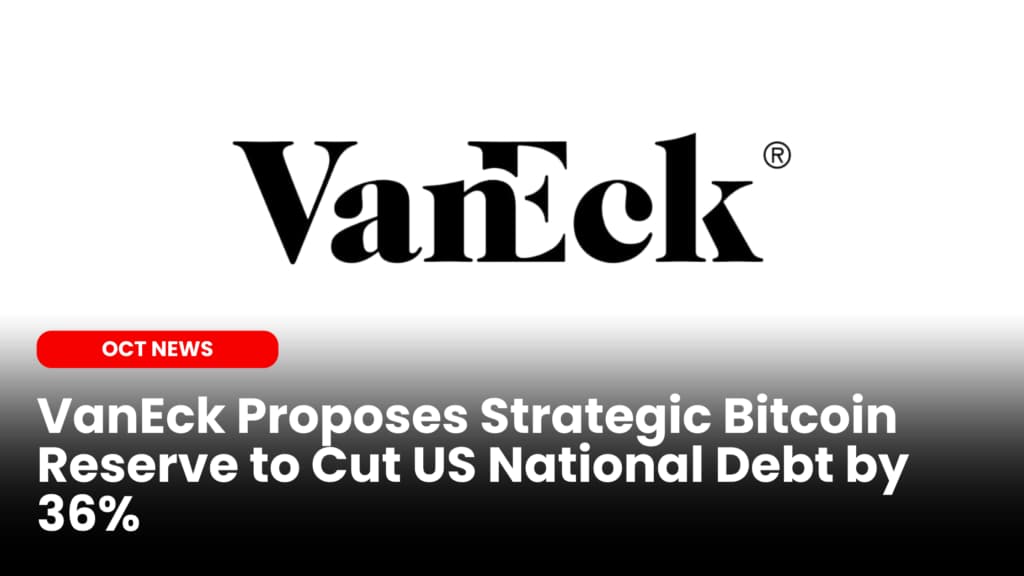
VanEck projects that a Strategic Bitcoin Reserve could reduce US national debt by 36% by 2050. The proposal aligns with Senator Cynthia Lummis’s advocacy for Bitcoin adoption, despite skepticism from financial experts.
Author: Tanishq Bodh
VanEck, a global asset management firm, has projected that the United States could cut its national debt by 36% by 2050 by establishing a Strategic Bitcoin Reserve. The proposal aligns with growing advocacy for Bitcoin adoption, including Senator Cynthia Lummis’s push for the U.S. to acquire 1 million bitcoins as part of her Bitcoin Act initiative.
According to VanEck’s analysis, a Strategic Bitcoin Reserve could reduce the national debt by approximately $42 trillion by 2049. This forecast assumes a 5% annual growth in debt and a 25% yearly increase in Bitcoin’s value. Under these conditions, Bitcoin’s price could exceed $42 million per coin by 2049.
Mathew Sigel, VanEck’s Head of Research, suggested that Bitcoin could emerge as a dominant settlement currency for international trade, particularly for nations seeking alternatives to the US dollar amidst escalating sanctions.
“It’s very possible Bitcoin will be widely used as a settlement currency for global trade by countries who want to avoid the parabolic increase in USD sanctions,” Sigel noted.
VanEck outlined several steps to establish the reserve, including:
The firm suggests these measures could accelerate implementation without requiring extensive legislative action.
Despite the optimistic outlook, the proposal has faced criticism. Venture capitalist Nic Carter questioned whether a Bitcoin reserve would genuinely strengthen the US dollar.
Investor Peter Schiff proposed an alternative approach, advocating for the creation of a digital currency, “USAcoin,” as a government-backed solution to national debt issues.
While proponents like Senator Lummis view Bitcoin as a pathway to financial stability, critics warn of the volatility and risks associated with relying on the cryptocurrency. As discussions continue, the idea of integrating Bitcoin into the U.S. financial system underscores the growing recognition of digital assets in shaping global economic strategies.
Our Crypto Talk is committed to unbiased, transparent, and true reporting to the best of our knowledge. This news article aims to provide accurate information in a timely manner. However, we advise the readers to verify facts independently and consult a professional before making any decisions based on the content since our sources could be wrong too. Check our Terms and conditions for more info.


Stripe Predicts Boom in Agentic Commerce Using Stablecoins
Coinbase Launches 24/5 Stock Trading for U.S. Users
Ondo Tokenized Stocks Launch on Binance Alpha for Global Users
Jane Street Becomes Target Of Social Media Hate Amid Manipulation Claims
Stripe Predicts Boom in Agentic Commerce Using Stablecoins
Coinbase Launches 24/5 Stock Trading for U.S. Users
Ondo Tokenized Stocks Launch on Binance Alpha for Global Users
Jane Street Becomes Target Of Social Media Hate Amid Manipulation Claims